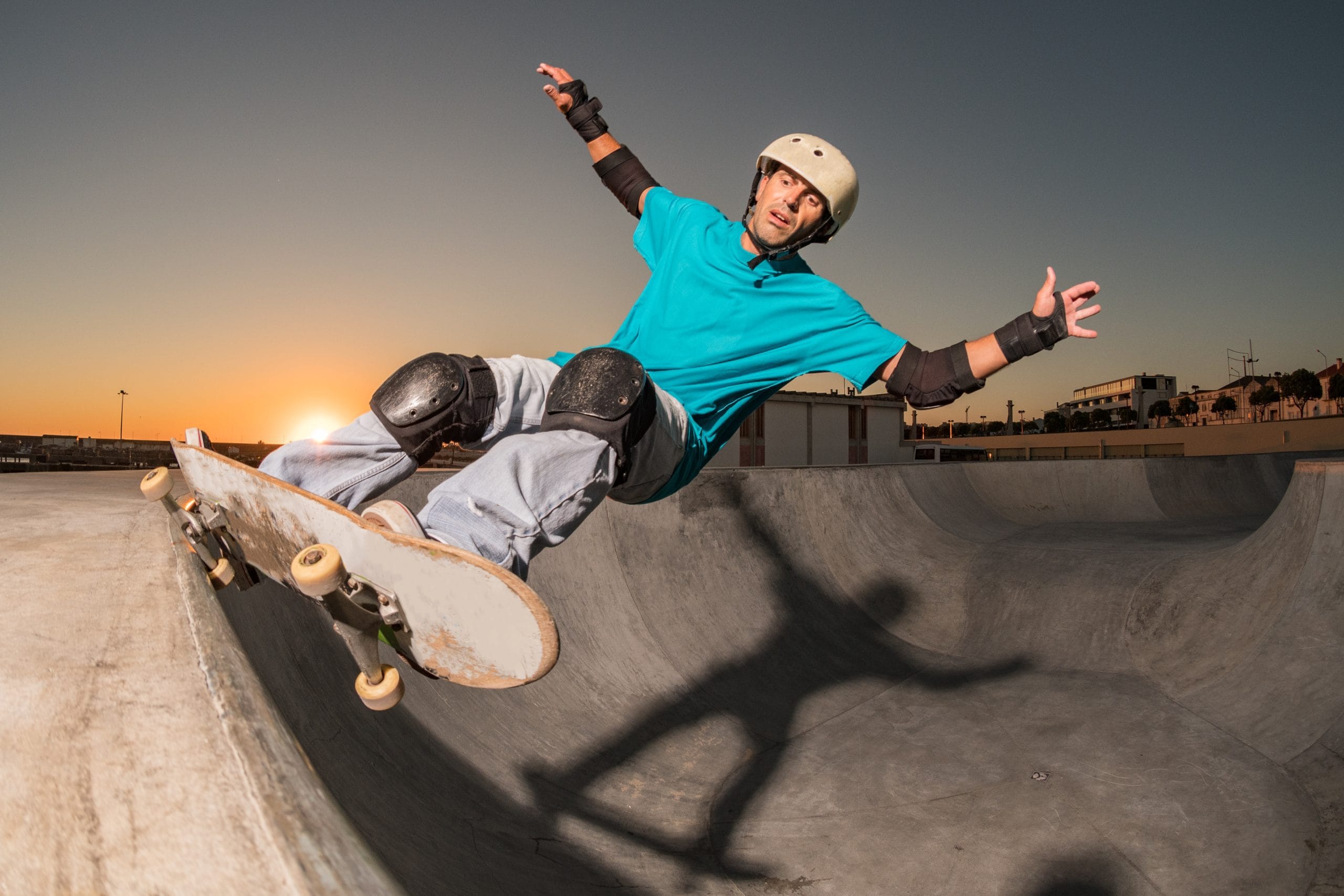


Skateboard Brands Turning Cultural Cachet Into Business Clout

July 10, 2025

The skateboard world has never been about corporate polish or rigid business plans. Its roots are raw, expressive, and community-driven. Yet despite its anti-establishment posture, skateboard culture has been fueling some of the most forward-thinking brand strategies over the last two decades. What started on half pipes and asphalt has steadily infiltrated boardrooms and global markets. Today, the brands that once sold decks out of the back of vans are influencing global fashion, setting marketing trends, and redefining what it means to build loyalty in a fragmented digital age.
Some skateboard companies have quietly transformed into branding powerhouses, not by abandoning their rebellious DNA, but by translating it into something that resonates far beyond skaters. They are not simply selling boards anymore—they are selling worldviews, aesthetics, and cultural authority.
Skateboarding as a Brand Ecosystem
The skateboard scene has always operated more like a lifestyle collective than a traditional product category. A deck is not just gear—it is a statement. That philosophy has driven many successful skate brands to expand into adjacent categories like apparel, footwear, and content creation.
Brands like Baker Skateboards and Santa Cruz Skateboards are perfect examples. While they maintain deep credibility in the skating world, their logos, style, and tone have become symbols that resonate with a much broader demographic—music fans, streetwear collectors, and even high school kids who may have never stood on a board. This expansion into lifestyle merchandising has helped them compete not only with other skate brands, but with mainstream fashion players.
Even more interesting is how some of these brands have become media hubs in their own right. Whether it is Thrasher Magazine pumping out YouTube content and pushing global trends through its hoodies, or Girl Skateboards aligning itself with film and design, the focus is no longer just about riding—it is about building culture and exporting it.
From Streetwear to Street Strategy
Skateboard brands were some of the first to blur the lines between product and culture. Long before content marketing became an industry buzzword, skate companies were producing full-length films, zines, and music collaborations that tied into the essence of their brand. That instinct to storytell, rather than just sell, gave these brands staying power.
Streetwear brands that evolved out of skateboarding, like Supreme and Palace, built empires by leveraging skate culture’s DIY values and underground ethos. Supreme famously started as a skate shop in New York, but eventually became a billion-dollar brand by balancing scarcity, collaboration, and credibility. The key wasn’t mass appeal—it was authenticity. Supreme’s partnerships with high-fashion labels like Louis Vuitton and their carefully controlled product drops created an economy around exclusivity, not volume.
Others like HUF and The Hundreds followed a similar playbook, blending skateboarding with music, graffiti, and social commentary. These were not just product companies—they were cultural curators. And in doing so, they attracted a customer base that values identity over convenience.
Youth Marketing With an Edge
One of the most valuable audiences for any consumer brand is Gen Z. Skateboard culture has an unmatched connection to this segment because it is viewed as authentic, unscripted, and fearless—qualities that resonate with younger audiences who are notoriously wary of inauthentic marketing. Brands that genuinely engage with the skateboarding community, rather than treating it as a trend, are rewarded with loyalty that traditional marketing often fails to achieve.
This is why even non-skate brands attempt to tap into the space. Vans, originally a skate shoe company, now dominates lifestyle footwear largely due to its emotional resonance with subcultures. It did not just market to skaters; it became synonymous with them. Today, Vans hosts its own music festivals, collaborates with indie designers, and still maintains strong links to skating without diluting its identity.
Meanwhile, Nike SB, Nike’s skateboarding division, took a very different path. Initially met with skepticism by the skate community, Nike SB gained traction by signing top-tier talent, listening to feedback, and investing in skate shops and local scenes. The company did not just sponsor athletes—it embedded itself in the culture. That long-term investment strategy paid off as Nike SB now plays a legitimate role in both skateboarding and sneaker culture.
The Business Behind the Boards
The monetization of skateboard brands has taken multiple forms. Limited edition drops, collaborations with artists and fashion labels, and international licensing deals have created a diverse range of revenue streams. This is not just a niche market anymore—it is a full-fledged commercial ecosystem.
Even investment firms have taken notice. Some private equity groups and brand holding companies are acquiring streetwear and skate brands as part of their portfolio diversification strategies. The thinking is simple: niche audiences with cultural gravity often outperform generic mass-market products over time. A well-positioned skate brand with a loyal fanbase has strong potential for sustained profitability, especially when expanded into new verticals like gaming, NFTs, or experiential retail.
However, the transition from a gritty skate shop to a scalable business is not always smooth. Many founders grapple with staying true to the ethos that built their community while meeting the demands of growth, logistics, and investor expectations. Authenticity does not always translate easily into quarterly returns. The companies that succeed are the ones that bring operational discipline without stripping away the spirit of what made the brand resonate in the first place.

Cultural Legacy Meets Brand Longevity
Another reason these companies are worth watching is their ability to build brand equity that lasts. In an era of short-lived DTC brands and viral trends, skateboard companies that have survived for decades are doing something right. Their customers age with them, but often stay loyal. A teenager who wore a Powell Peralta hoodie in high school might still be buying gear for their kids today—not because it is trendy, but because it is part of their personal narrative.
That multigenerational connection creates a long-tail brand opportunity. Companies that understand how to maintain cultural currency while modernizing their operations are well positioned to expand through licensing, franchising, and media plays.
There is also a growing global market. Skateboarding was included in the Olympics for the first time in 2021, giving it mainstream legitimacy in countries where it was previously underground. That international spotlight has opened the door for exports, athlete endorsements, and brand collaborations across Asia, South America, and Europe. The movement is no longer just American—it is global, and the brands that think internationally are already ahead of the curve.
Closing Remarks
Skateboard brands are not a trend—they are a business model that thrives on authenticity, creative freedom, and cultural resonance. What began as an act of rebellion has become a blueprint for building influence in the modern economy. These companies have shown that being true to a subculture does not mean limiting your market. On the contrary, it can unlock business opportunities that traditional strategies often miss. As the lines between lifestyle, commerce, and culture continue to blur, the brands born out of the skateboard world are proving just how powerful cultural cachet can be when translated into strategic clout.
Recent Posts



September 9, 2025
Discovering the Role of Intellectual Property in Startup Success

September 9, 2025


September 8, 2025
Diving Into the Convergence of Healthcare and Technology

September 8, 2025
News Updates & Exclusive Offers
Stay informed and inspired with content right to your inbox. Enter your first name and email, then select your interests.
All communications you receive are directly from BizBlog.com. We value your privacy and will not share your email data with any external companies.


